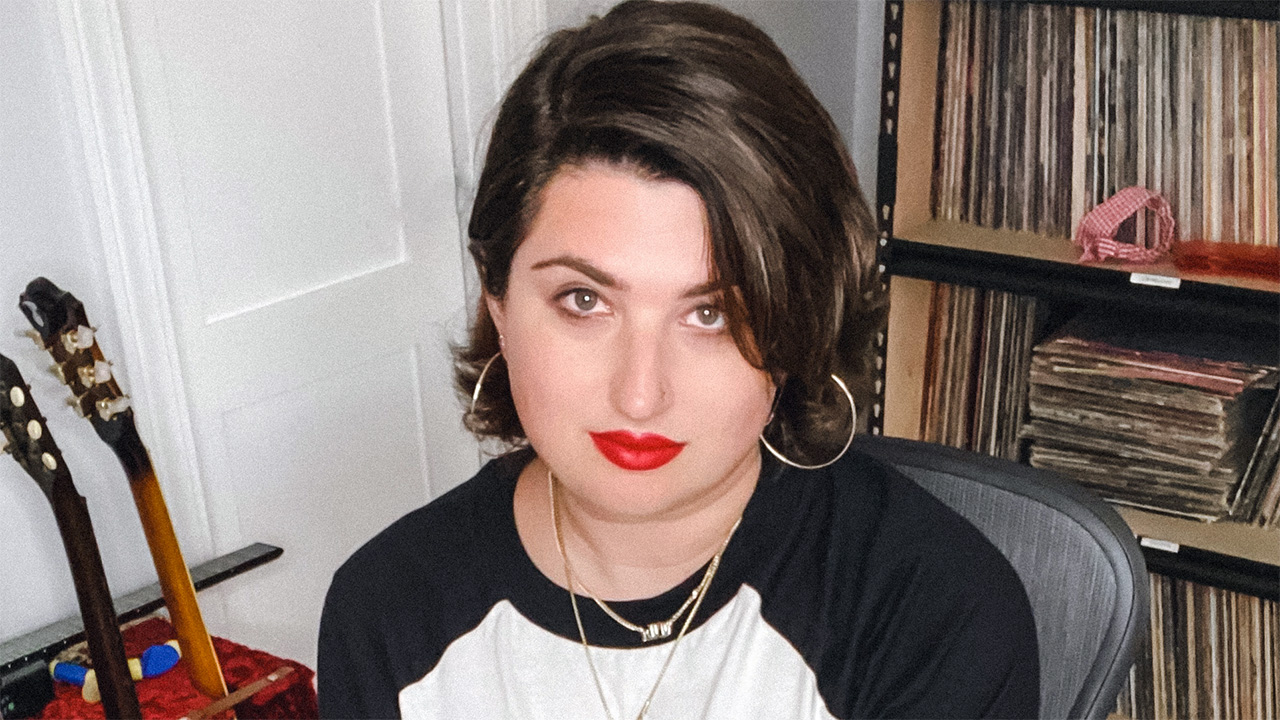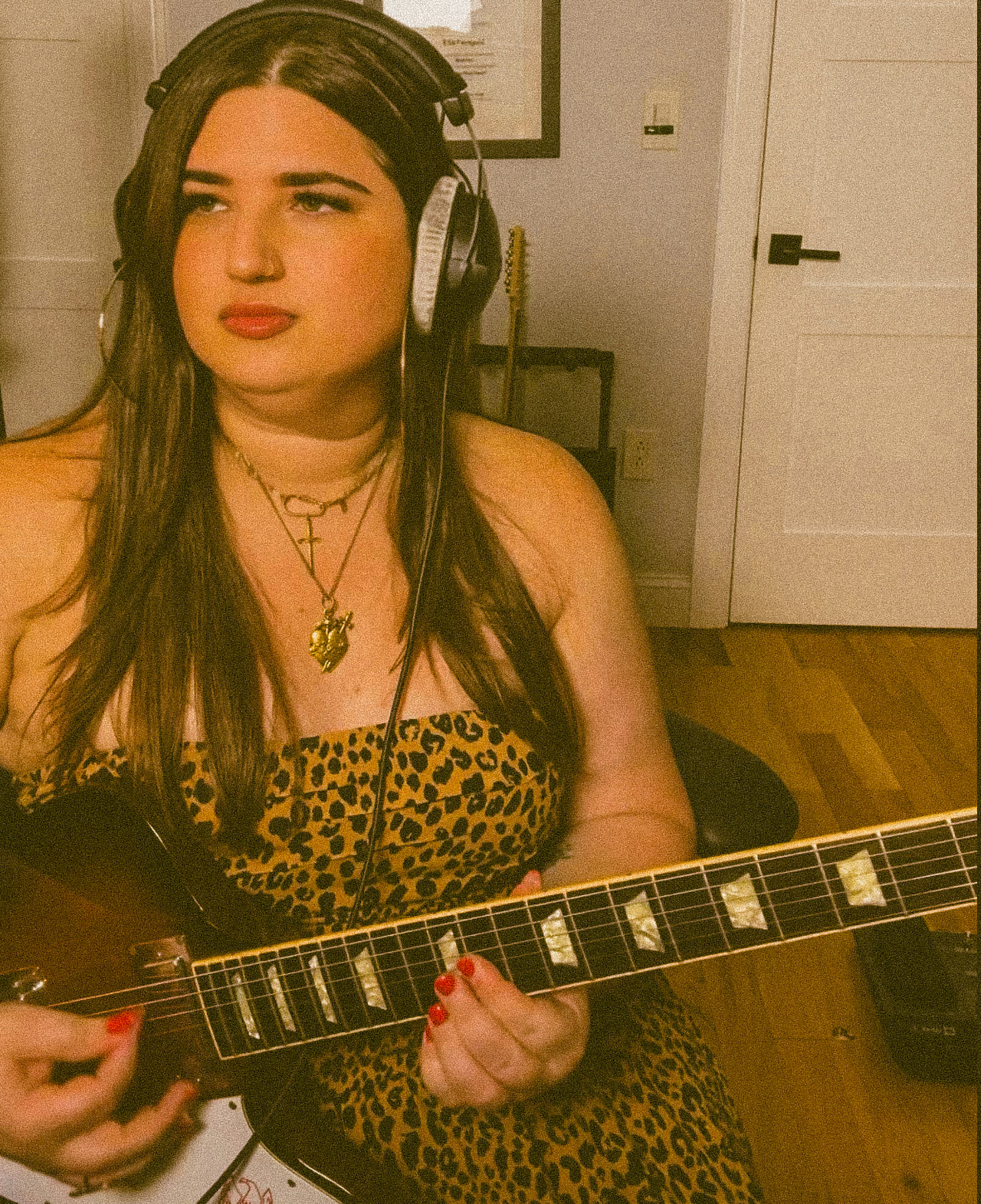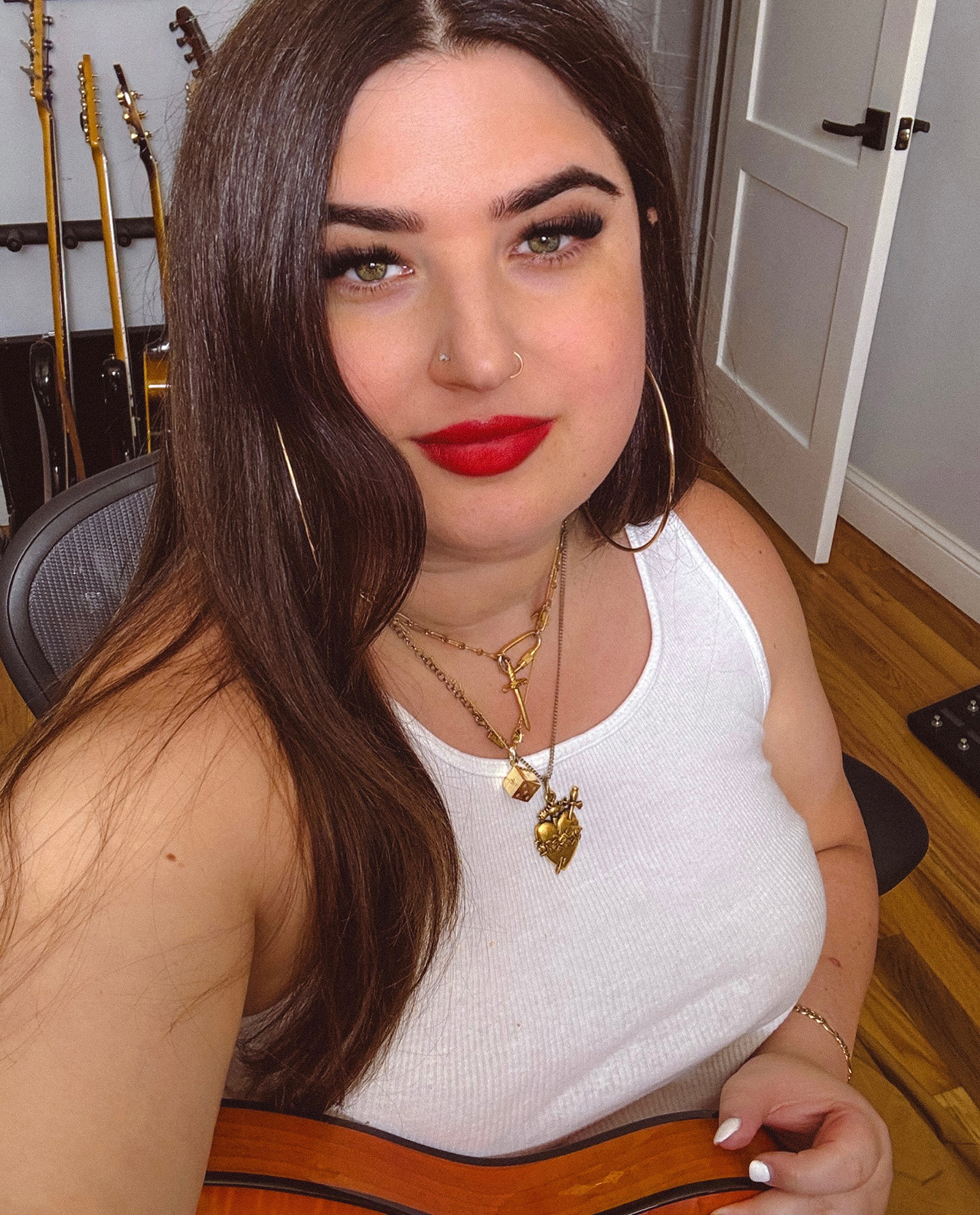
She’s worked with Queen Latifah, Erykah Badu, Bruno Mars and Anderson .Paak and very briefly with Prince – but Grammy-winning guitarist Ella Feingold is most proud of overcoming the challenges it took to be herself.
One of the biggest challenges was that she’d had much of her success under her deadname, left behind when she transitioned four years ago.
“I learned that by being me, I unintentionally held up a mirror to everyone,” Feingold tells Guitar World.
“Sometimes they’d see: ‘Ella’s jumped off a cliff without a parachute!’ They’d be awoken; and that’s when trans people can be beautiful to others. But sometimes you show a mirror to someone and it terrifies them. They’re usually the people who hate us.
“It’s like, ‘Who are you beyond who you’ve been told to be?’ Transgender people smash that mirror of expectation. We color outside the lines and live life on our terms to be happy.”
Feingold admits: “I thought the reaction was going to be people being weirded out and being hateful. I wasn’t prepared for my DMs to be flooded with confessions from people who’d been awoken – just them spilling their guts because they felt safe. I’m so comfortable being myself. It makes other people comfortable being themselves and exploring who they are around me.”
Where did your love of R&B and funk guitar come from?
“It started with my dad raising me on black American music and always playing Motown in the car. Then I studied with a guy named Spanky Alford, who played for D’Angelo. I don't love using the term ‘neo-soul,’ but he’s the godfather of that style that a lot of people emulate.”
When do you feel you’d found yourself as a guitarist?
“I’ve been playing for 30 years and a lot of cool stuff happened, but I don’t think I really found my voice until about three or four years ago. As a trans girl I just stopped caring about what people thought. I stopped trying to sound like other people and my sound emerged. It was literally timed with my transition – it’s not a coincidence.”
“Before I transitioned I knew I wasn’t me; I was living as someone else. How could I sound like me when I didn’t know who I was?”
Any specific nuances you’ve discovered?
“Listening a lot more. When I’m releasing a note, I’m very conscious of how I get off the note. A lot of people focus on the front end of the note and don’t pay attention to the back end. I became very aware of the nuances of articulation and note duration.”
Prince once said you were “too funky” on guitar. What’s the story there?
“He asked me to audition for his band around 2005. I went to his house in the Hollywood Hills and auditioned for a few days. I was just playing something, and he gave me the stank face, saying, ‘Oh, that’s too funky’ – not in a good way.
Prince didn’t talk a lot. I needed to read body language… it was more of a test
“I was thinking, ‘What does that mean?’ He said, ‘Think more Elton John.’ I was like, ‘Is he clowning – is he trolling me?’ I realized what he meant was to have more of a heavy left hand, like on a piano, which translated to more power chord stuff.
“That was his way of saying what he wanted rather than saying, ‘Just play power chords.’ I got it; he wanted a big, heavy kind of sound. I got to play his Mad Cat Tele and all of his guitars. It was a life highlight – something I’ll never forget.”

How did you like playing the Mad Cat Tele?
“I remember the guitar strap being incredibly worn down. It had to have been the original strap. The action was very low, and the neck felt very comfortable and road-worn after a lifetime of playing. It felt amazing. I picked a few others up, but with that one I was like, ‘Oh wow, this is special.’”
What was your biggest takeaway?
“Prince didn’t talk a lot. I needed to read body language. I know with other people he’d be like, ‘No, play the fifth to the third.’ With me, it was more of a test – trying to see where my instincts were; just seeing where I’d take it naturally. He was notorious for doing things like that.”
Bruno Mars asked me to listen to records and say what I thought they used for amps, strings and picks. I’m nuts about that stuff
You also worked with Queen Latifah, which led to your work with Erykah Badu.
“Queen Latifah was the first major tour I did. I was 22; I’m 43 now, so a long time ago! That was my first experience of touring and having a guitar tech, and there were a lot of ‘pinch me’ moments. Erykah was on that tour, and she liked the way I played; that’s how I got the gig with her.
“That tour is how I got the Prince audition. He’d come to see us a couple of times. On the last night of the tour Erykah threw an after-party at the Key Club on Sunset. It was meant to be a jam session just to let loose.
“Prince was up in the balcony, which I didn’t know. He heard me playing all night. When I got the call to audition for him I hung up – I was like, ‘Man, who the fuck is this? There’s no way Prince’s manager is calling me!’ They called back and said, ‘Don’t hang up – Prince was at the Key Club…’ I was like, ‘Oh, shit…’”
You’re still playing with Erykah. What have you learned from that experience?
“One of the most important things in her music is the pauses and spaces. Each time the music stops, it comes back in re-energized. She’s very generous; she doesn’t care if it doesn’t sound exactly like the record. We reinvent ourselves sometimes in the music.”
The feeling of driving to Walmart when they opened, buying the Silk Sonic CD and seeing ‘Ella Feingold’ in the credits… I just wept in the car. I felt like I’d arrived.
More recently, you've worked with Bruno Mars, who gave you one of his signature Strats.
“He sure did. When we initially talked on the phone he didn’t tell me what he was working on. He asked me to listen to records and give my opinion of what I thought they used for amps, strings and picks.
“I’m nuts about that stuff; I’ve done my homework. He’d send me records and I’d send him records. Then eventually he asked, ‘Would you want to play on a song?’ I said, ‘Of course!’
Is working with Bruno very different from working with Prince?
“Very different – Bruno knew what he wanted. I don’t mean Prince didn’t know; he was being cryptic on purpose. Bruno had ideas of what he was looking for, and I had my own. I got all his ideas done, gave him extra tracks of things I heard, and let him comp however he wanted.

“It was an honor to be on An Evening with Silk Sonic because I transitioned during the making of it. That’ll always be a special album because it was the first one that had my name, Ella, on it, rather than my previous name.”
Given the amount of success you had before transitioning, it must have been difficult to make that change.
“It was absolutely something I had to consider. I was on hormones for nine months before coming out publicly, while making the Silk Sonic album. What transitioning taught me is that you don’t know how people will respond and react. You can guess, but you really don’t know.
Buying the Silk Sonic CD and seeing ‘Ella Feingold’ in the credits… I just fucking wept in the car
“I was concerned that if I had come out during the making of an album, I might have been replaced. So I waited to come out right at the end of making the Silk Sonic album – I almost had the album come out with my deadname. I remember talking to my friend, a trans girl, who like, ‘You can’t do that. It’s got to come out under your own name.’ I was like, ‘But what if I get fired?’
“I’m not saying that Bruno or anyone I work for is transphobic. It’s on me, and just not knowing how people would respond. Even four years ago was a different time than it is now. So I waited for a while. But the feeling of driving to Walmart when they opened, buying the Silk Sonic CD and seeing ‘Ella Feingold’ in the credits… I just fucking wept in the car. I felt like I’d arrived.”
Your success and openness about what you went through are so important.
“It’s hard being in certain spaces. On Instagram I have a fair amount of followers, and I feel very admired and respected; people are very grateful for what I do. Unfortunately, any guitar space can attract a lot of transphobia. Sometimes I get placed into a space like I’m the Joan of Arc of funk – I get crucified and burnt alive. It’s really horrible.”
Does that impact your artistry or guitar playing?
“One of the best spinoffs of transitioning is that, when I play my instrument, it now comes from a place of urgency and authenticity. You can feel my pain like I’m crying or screaming through my fingers. It’s not because I play loud or angry – there’s just an urgency.
“I can’t compare my life experience to someone else’s, but I can say there are certain genres of music where people are oppressed, and you can feel it through the rawness and realness. It’s not about modes, scales or chords; it’s about playing from a life experience that you’re living.
“Transitioning has given me that gift in my playing. It speaks to people. Not because I’m authentic – though that’s part of it – but because of the oppression I have to face: being misunderstood, hated, objectified and dehumanized. It’s given me an urgency in my playing.”
- Follow Feingold on Instagram.







